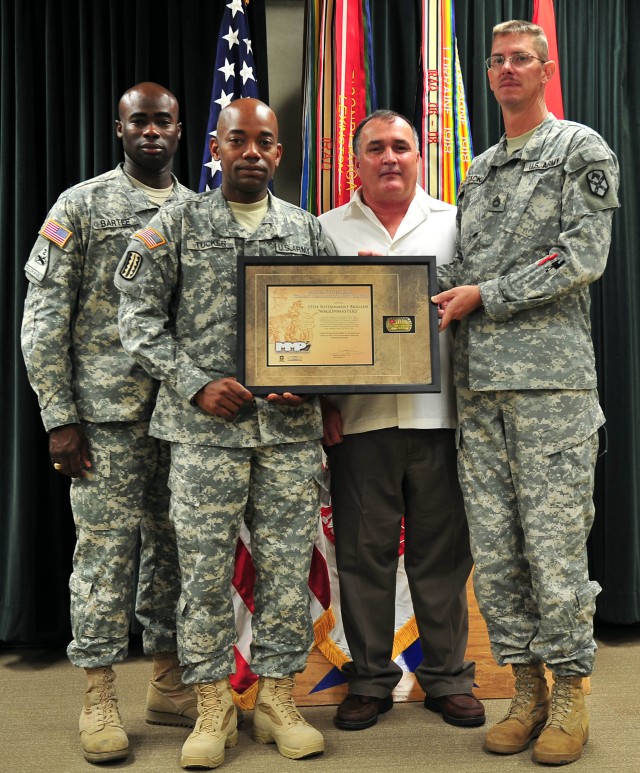
FORT HOOD, Texas - Command Sgt. Maj. Nathaniel Bartee, senior non-commissioned officer 15th Sustainment Brigade, 13th Sustainment Command (Expeditionary), accepted an award for safety excellence on behalf of the 15th SB Motorcycle Mentorship Program, or MMP, presented by Brig. Gen. William Wolf, Director of Army, Safety United States Army Combat Readiness/Safety Command, at a ceremony here, July 22.
15th SB "Wagonmasters" were recognized for establishing the MMP, organizing the Phantom Thunder motorcycle ride, numerous safety programs on behalf of the Soldiers, and ensuring Soldiers drive safely.
"When programs are in place and Soldiers go above and beyond to try and achieve excellence to try and take care of their Soldiers and their fellow Soldiers, we want to recognize that," Wolf said.
The 15th SB MMP was established in 2006 and designed to reduce motorcycle fatalities, provide mentorship, continuous training for the veteran rider , and develop safe riding techniques for the inexperienced riders.
Dave Sullivan, safety officer; Sgt. First Class John Tackett, senior mentor for luxury bike riders; and Sgt. First Class Lastazar Tucker, senior mentor for sport bike riders, all with 15th SB, have maintained the program since its establishment.
One aspect of the program is the pairing of veteran riders with new riders for coaching and mentoring as they gain experience riding.
According to Sullivan, the leadership-based program not only focuses on the development of the rider but the non-rider as well.
Another focus point of the program is to educate the non-riding supervisors on how to conduct a proper motorcycle inspection, ensure their Soldiers are getting the correct training, and verify the rider has accurate registration and insurance.
"Leadership involvement from the young squad leader all the way up to the brigade commander is what makes the difference in the success of the mentor program," Sullivan said.
The senior mentors also ensure that the riders are in compliance with post policies on wearing the proper personal protection equipment, on and off post.
What about the future of the program'
"I would like to implement a driving test," Tucker said.
Mentors don't get to see how the riders act on the bikes other than the scheduled events or in passing, he added.
Tackett stressed the importance of the program.
"Soldiers are a lot more conscious of what they're doing [when they ride]," Tackett said.
"If we don't take the time, then we have failed and someone goes out and gets killed."

Social Sharing